
The AIgorythm project

Playwright and actor
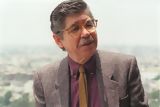
Novelist

Writer and poet

Volleyball player

Italian-Peruvian naturalist and geographer

Singer and percussionist

Last Inca emperor

Politician, former prime Minister

Journalist and TV host
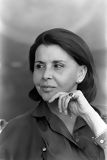
Poet

Inca warrior
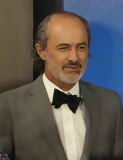
Actor and comedian

Biophysicist

Poet

Doctor and researcher
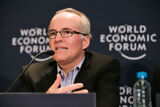
Businessman, Interbank group

Journalist and writer
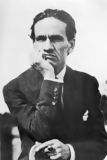
Poet and writer
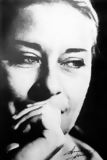
Singer and songwriter
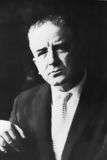
Writer

Film director, Berlin Golden Bear winner

Football player
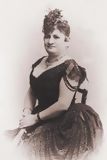
Writer and journalist
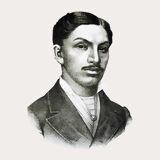
Doctor and scientist

Photograph

Chess player

Industrialist
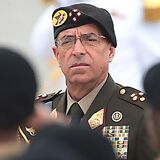
Former general

Specialist in public health

Actress and singer
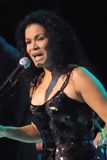
Afro-Peruvian music singer

Mathematician and engineer

Indigenous chronicler

Neurologist and anthropologist

Painter

Football player
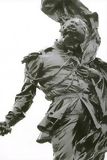
National hero, military leader

Intellectual and reformer

Chef and entrepreneur

Fashion designer

Singer-songwriter

TV presenter

Marathon runner

Indigenous Peruvian chronicler

Theologian

Former national team captain

Economist and former health minister

Inca princess

Writer and television host

Folk musician

Poet and guerrilla
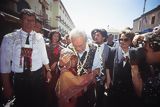
Former UN secretary-general

Chef, known for fusion cuisine

Football player

Peruvian aviation pioneer

Poet and artist
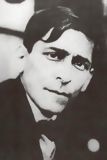
Marxist philosopher and writer

Industrialist and businessman
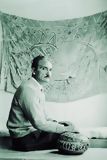
Novelist and ethnologist

Painter and muralist

Opera tenor

Fashion designer

Cardinal of Lima

Peruvian tennis player

Football coach

Leader of the indigenous rebellion
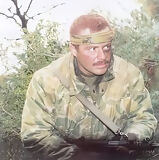
Military hero

Latin singer
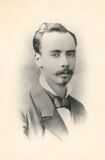
War of the Pacific hero

The youngest mother in history

Politician
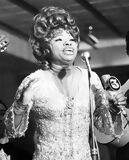
Creole music singer

Tennis player
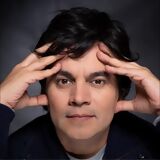
Musician

Writer and politician

Politician and founder of the Christian Democratic Party

Founder of Sodalitium Christianae Vitae

Archaeologist and anthropologist
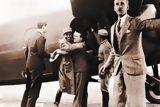
Military leader and politician

Television host
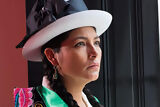
Actress and singer
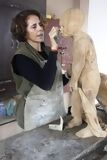
Contemporary sculptor
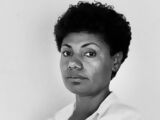
Women’s rights activist

Beauty queen

Astrophysicist

Heroine of independence
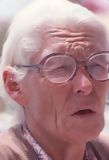
Mathematician and archaeologist

Historian and anthropologist
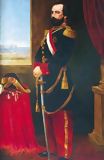
Military figure and historical figure

Fashion photographer
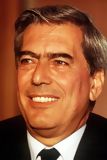
Writer, Nobel Prize in Literature, Politician

Revolutionary leader
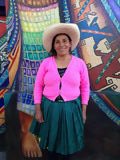
Environmental activist

Leader of the indigenous rebellion

Musician from Gaia band
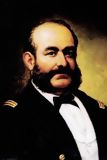
War hero
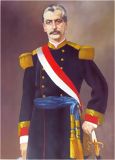
Military leader and politician

Chef, known for Nikkei cuisine

Volleyball coach and former player

Environmental activist

Television personality

Writer

Football player

Epidemiologist and former health Minister

Inventor and aerospace pioneer

Soldier and inventor
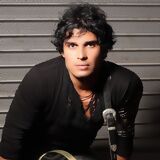
Rock singer

Chef and co-owner of Central restaurant

Painter

Football player

TV presenter and actress
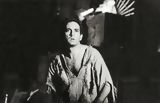
Actor
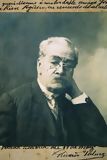
Writer and historian

Journalist and lawyer

Archaeologist, founder of Caral site
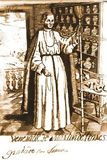
Monk and Saint
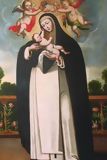
Saint, patron of Latin America

Physicist and engineer

World champion surfer

Actress

Oncologist
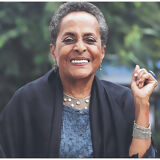
Singer, Latin Grammy winner

Former mayor of Lima

Singer

Actress

Former football player

Painter
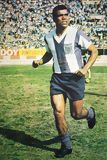
Former football player

Painter

Inca leader

Archbishop, saint
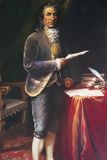
Leader of the indigenous rebellion

Revolutionary indigenous leader

Diplomat and intellectual

Sculptor and painter
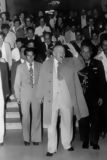
Political leader, founder of APRA

Lawyer and Former prime minister

Chef of Central restaurant
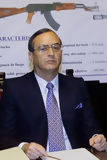
Former head of secret services

Popular singer

Fashion designer

Exotic music singer
Fernando Cabieses Molina (1923-2012) is one of the most prominent figures in the field of neurobiology and traditional medicine in Peru. As a scientist, researcher, and physician, he dedicated his life to exploring the mysteries of the human brain and conducting extensive research on medicinal plants used in traditional Peruvian medical practices. His multidisciplinary approach, combining modern science with ancestral knowledge, greatly enhanced the understanding of the therapeutic properties of Andean and Amazonian plants. Cabieses is also known for founding the Museum of Medicine in Lima, an important institution for preserving and disseminating medical knowledge in Peru.
Fernando Cabieses Molina was born in Lima in 1923 into a family of intellectuals. From a young age, he showed a strong interest in the natural sciences, which led him to study medicine at the National University of San Marcos, Peru's oldest and most prestigious university. After earning his medical degree, Cabieses pursued further studies in neurobiology, a field still relatively unexplored in the mid-20th century.
He continued his training abroad, particularly in the United States and Europe, where he worked alongside some of the leading specialists in neurobiology and neurology. This international experience allowed him to acquire a solid scientific foundation while maintaining a close connection with the medicinal traditions of his homeland.
Upon returning to Peru, Fernando Cabieses Molina established himself as one of the country’s first neurobiology experts. He conducted groundbreaking research on the functioning of the human brain, particularly on pain mechanisms, sensory perception, and the role of neurotransmitters. His work contributed to advancing knowledge of the central nervous system and provided new insights into neurological disorders such as migraines and epilepsy.
As a professor and researcher at San Marcos University, Cabieses trained many generations of doctors and scientists, helping to create a Peruvian school of neurobiology. He published numerous articles in renowned scientific journals and participated in international conferences, promoting Peru’s scientific potential on the global stage.
In parallel to his work in neurobiology, Fernando Cabieses Molina became deeply interested in medicinal plants and their traditional use in Andean and Amazonian communities. He conducted extensive research on the healing properties of plants such as ayahuasca, San Pedro, and coca, seeking to understand how these plants could be integrated into modern medicine.
Convinced that modern medicine had much to learn from ancestral knowledge, Cabieses advocated for an integrated approach to medicine, where science and tradition could complement each other. He collaborated with traditional healers (curanderos) and shamans, studying their practices and analyzing the bioactive compounds in the plants they used. Thanks to his efforts, many Peruvian medicinal plants were scientifically studied, and their therapeutic benefits were recognized internationally.
In 1995, Fernando Cabieses Molina founded the Museum of Medicine in Lima, a unique institution that traces the history of medicine in Peru, from pre-Hispanic practices to modern medicine. The museum houses an impressive collection of medical instruments, ritual objects, and medicinal plants, illustrating the country’s rich medical tradition.
The Museum of Medicine is also a research and knowledge dissemination center for traditional Peruvian medicine. Cabieses organized numerous seminars and conferences to raise awareness among healthcare professionals and the general public about the importance of preserving ancestral medical knowledge. Through this initiative, he helped strengthen the dialogue between traditional and modern medicine.
Throughout his career, Fernando Cabieses Molina received numerous accolades for his contributions to science and medicine. He was a member of several international scientific academies and received awards for his work in neurobiology and medicinal plants. He was also the author of several books that remain reference points in these fields.
His legacy continues through his writings, research, and the many people he inspired. The Museum of Medicine, which he founded, remains a key institution for preserving traditional medical knowledge and promoting research in alternative medicine.
Fernando Cabieses Molina left an indelible mark on the history of science in Peru. His contributions to neurobiology and his dedication to recognizing traditional medicinal plants transformed the way medicine is perceived and practiced in Peru. His work not only enriched scientific knowledge but also reinforced the importance of dialogue between modern and ancestral wisdom. Today, Fernando Cabieses is celebrated as a pioneer and visionary, whose legacy continues to influence medicine and science in Peru and around the world.